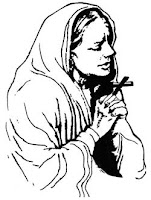Catholicism, Protestantism, and Evidence
-----------------
To him the case is: where's the evidence to get from who Jesus is and
what he taught to the Catholic church. He believes you need to, to be
justified in believing in papal infallibility, which in my mind (and
in his) is the key doctrine, since it is unique among all
Christianities (as it were!). To him you need to have evidence that
Jesus authorized Peter to teach with His (Jesus') own authority, that
is, infallibly.
[Trent] I don’t disagree one bit, I’m an evidentialist to the core. But of course there is the testimony of the Church Herself. I’m sure you’re familiar with the idea of dong a dilemma argument on the Church. She claims to be the fullest expression of the visible Body of Christ on Earth, headed by the viceroy of Christ. That’s either true or false. If it’s false, then the Catholic Church must be destroyed. But if it’s true, then…
But of course there is evidence. Given that the Church has claimed—via the ordinary Magisterium and by the Extraordinary Magisterium in Vatican I—that the Bishop of Rome, the Successor of Peter, is the viceroy of Christ—Ever seen the study on the keys in the OT?—anyway, given that claim, then we may be practically certain of the following conditional
(1) If there was not apostasy before Vat II, then Papal Infallibility is a true doctrine.
This assumes, as I said I would assume before, since I honestly don’t take it to be historically tenable to deny, that the doctrine of Apostolic Succession is true. Clement, Ignatius, Irenaeus, Tertullian all testify to it. The very successors to the Apostles, and their immediate successors, teach Apostolic Succession pretty straightforwardly.
Let ATS state the Apostolic Fathers testimony to Apostolic succession.
Let S state the doctrine of Apostolic Succession.
(A) Pr(S/ATS) = very very high
Since I take ATS to be part of my background information, I’m taking S for granted.
Since I think the balance of evidence greatly supports the claim that there was no apostasy, I am forced by Bayesian Evidentialism to give at least equal credence (the theorem says at least as much, but it could be more) to S.
So again, I am in *complete* agreement that one's cognitive states need to fit the evidence, but it still seems to me that the Protestant position has it completely backwards with regard to the default position and who needs evidence for what.


